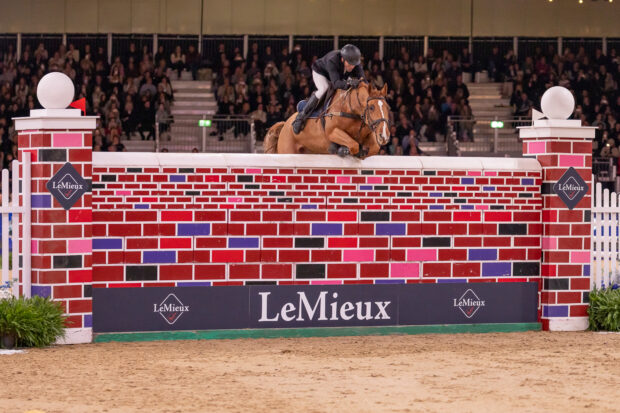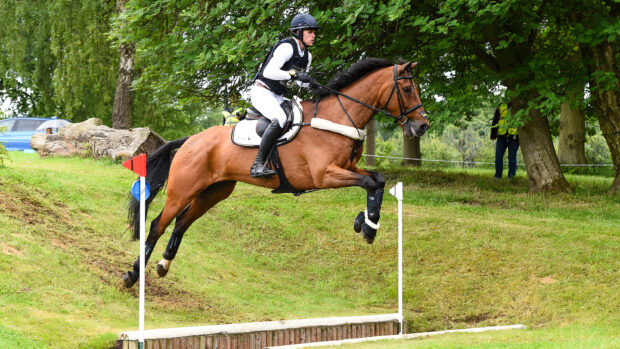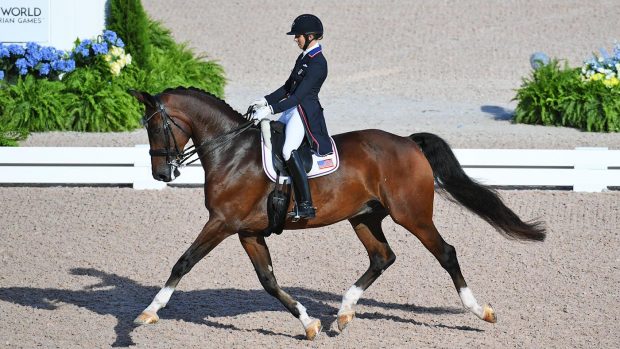Educating horses to cope with the world around them from a young age is crucial to set them up for a happy life.
That was one of the key take-home messages for the whole equestrian world from a workshop featuring world-leading vets, scientists and horsemen in Newmarket (24 May).
The conference, titled “Equine cognizance and mental maturity – what do we know?”, came about as a result of developments happening in Germany.
German federal animal welfare law means horses under the age of 30 months are no longer eligible to start training or be used for competition. Two-year-old racehorses are currently exempt, providing they undergo two veterinary assessments.
The development has sparked concerns – questions raised at the workshop included how a vet could possibly make a snapshot judgement on an unfamiliar horse in such a short period of time, and the lack of evidence for this move.
Pushback in Germany has prompted the country’s ministry for agriculture to commission a welfare study (Projekt Horsewatch) to determine the age at which horses have achieved the mental and physical maturity that permit training and competition. The report, its conclusions and recommendations must be submitted to federal parliament in 2027 or 2028.
The news prompted organisers to call the conference. Interestingly, the workshop heard that there is not only a lack of evidence to back up the ban – but that there is strong evidence to refute the 30-month hypothesis, and that indicates that appropriate training of young horses is beneficial.
Teaching resilience
Speaking about stress in horses in general, behaviour specialist Dr Gemma Pearson shared how gentle handling from a few days old will help them to cope with stress throughout their lives.
“There are so many things we can do to set horses up for success in life,” she said, giving examples of appropriate living spaces with access to other horses, and of gentle handling as foals.
“We know that horses who are bold, which are more likely to touch a novel object both at five months and also at one year of age, have better learning ability using both positive reinforcement, but also negative reinforcement of pressure-release training, which is what we rely on when we’re riding horses. At the same time, those that are fearful have a lower learning capacity.”
She added that if you teach a horse resilience from the start through gentle, appropriate education, “they cope” even if they are subjected to stress later in life.
“Teaching horses using physical cues to step forward, to step back, to stand still – they learn that they can cope with stress, and that they can resolve the stressor,” she said.
Physical maturity
Speaking on the assessment of the thoroughbred’s physical maturity to train and race, Rossdales clinical director Pete Ramzan said that there is “overwhelming scientific and empirical evidence that commencing training before the onset of maturity” is beneficial for the horse.
“We haven’t done very well as a profession in educating the wider world that the positive thing to do with equine health and racehorse health, is to commence training earlier rather than later,” he said.
“It’s a complete myth that commencing training after horses have reached orthopaedic maturity, skeletal maturity, is better for them. It’s fundamentally worse for them as you’re missing your windows of opportunity for developing muscular skeletal tissues.”
He added that there is “no single objective measurement” that can be used at any one point in the horse’s life to say “this horse is ready and that horse isn’t”.
“In my view, it comes down to assessing how that individual is responding to training,” he said.
“It’s often the case that even the most technically adept trainers still use their eye, and we shouldn’t dismiss that as unscientific. There are good publications in the human world to show an experienced coach is just as good in many cases as using objective measurements of when an athlete is ready to train or not.”
Treating each horse as an individual
John Gosden, multiple-time champion Flat trainer, stressed the importance of treating every horse as an individual.
“With the young horses, I wait for them to present themselves to me,” he said. “If you go looking for them and push them, you do more harm than good.”
“All horses are like people, they’re all individuals, they have their strengths, they have their weaknesses. Your job as a trainer is to protect them from their weaker sides, whatever that may be – it could be physiological, it could be psychological – and to play to their strengths,” he said.
He added that there is a “massive amount” of quantification in managing horses now, giving examples of heart monitors and scoping – adding that “of course” that side is important. But whatever line of work you are in, you “cannot beat looking into the eyes, looking at the horse, watching his expression” and seeing when something is up.
“It’s the same with the people you work with,” he added. “I would always say that training, in a sense, is about 80% instinctive feel.”
He dispelled the idea of “wrapping horses in cotton wool”, explaining that training “doesn’t have to be hard or fast”, but that horses have to develop skeletally – and part of that is building bone density.
He added: “I find the most important button when I’m training horses is the pause button. Knowing when to come back, collect, get something right, and that may be something physical, but quite often something psychological.
“Whether you’re training a two-year-old, a three-year-old, a five-year-old or an eight-year-old, you’re always looking to contain that nervous energy, to channel it into their athleticism and not let the nervous energy undermine their confidence. The confidence of a horse is everything, just as it is with a jockey or a rider.
“I don’t think we should ever underestimate the impact that really good riders have with horses.”
Education or training?
Olympic eventing gold medallist and racehorse trainer Sir Mark Todd echoed Mr Gosden’s thoughts about treating each horse as an individual and the impact of the rider, also sharing similar remarks to Dr Pearson on the importance of early education for horses.
“I think educating horses from an early age is very important – and I use the word education as opposed to training,” he said.
He added the sooner that education starts the better – giving the example of teaching foals to pick up their feet and how useful it is to learn about their characters during that early handing.
“It’s your job to treat each as an individual and respect them, but also they have to conform to a set of boundaries in behaviour – much as you do with your own children,” he said.
Sir Mark also stressed the importance of watching and observing horses, and of getting good feedback from riders, and thinking about the whole picture when it comes to each individual horse’s needs.
“Do they need to move to a different stable? Do they need to spend a bit of time in the field? All the time, you have to be asking yourself questions about how can I make this horse the happy horse that wants to perform,” he said.
You might also be interested in:

Subscribe to Horse & Hound magazine today – and enjoy unlimited website access all year round

Spotting signs of trauma in horses and how to cope – experts discuss what owners need to know

Getting ready for your mare to foal: useful advice for first-time breeders
Horse & Hound magazine, out every Thursday, is packed with all the latest news and reports, as well as interviews, specials, nostalgia, vet and training advice. Find how you can enjoy the magazine delivered to your door every week, plus options to upgrade your subscription to access our online service that brings you breaking news and reports as well as other benefits.




